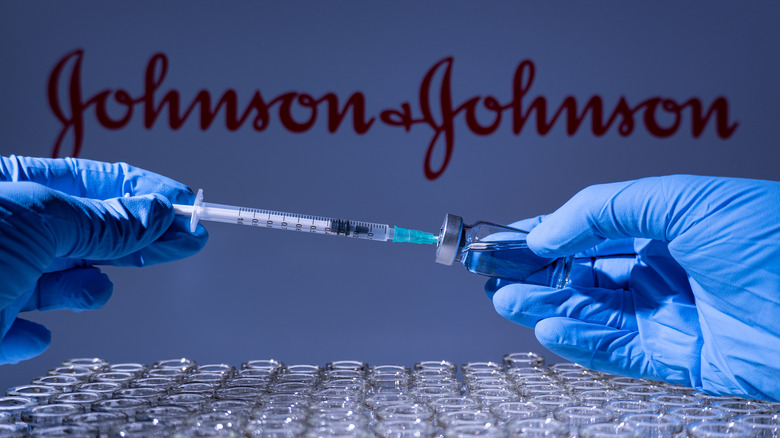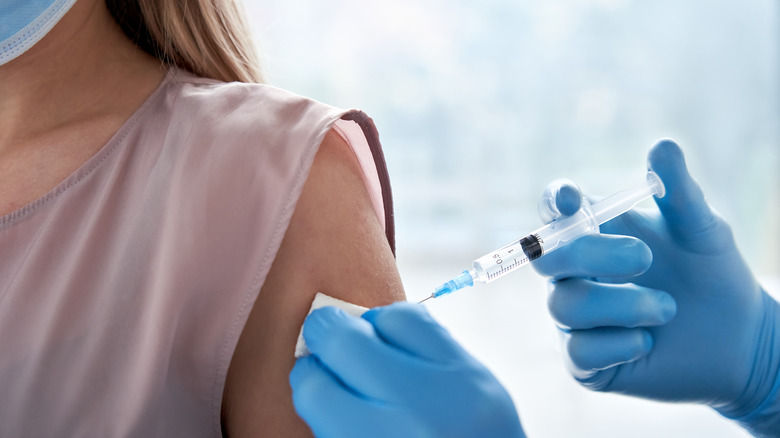The Truth About The Johnson & Johnson Booster Shot
As of late August 2021, approximately 14 million Americans have received the Johnson & Johnson COVID-19 vaccine, which was issued emergency use authorization at the end of February for emergency use, two months after the Pfizer and Moderna vaccines were authorized (via CNN). The Johnson & Johnson vaccine differs from the Pfizer and Moderna ones as it is not an RNA vaccine; rather, it is made from an adenovirus, an alteration of the common cold virus (via Mayo Clinic).
According to a Mayo Clinic report from April 2021, the Johnson & Johnson vaccine demonstrates high efficacy. It is up to 85% effective at preventing severe COVID-19, even in areas with new variants. On Wednesday, August 25, Johnson & Johnson revealed some of the results of its booster shot studies. When given six to eight months after the original, a second dose offered added protection against COVID-19 (via CNN).
"I'm quite certain that the FDA, CDC, NIH, White House will use these data to likely justify or recommend a booster for J&J-vaccinated people, probably with a second shot of J&J," vaccine researcher at Beth Israel Deaconess Medical Center and Harvard Medical School, Dr. Dan Barouch, told CNN.
The Johnson & Johnson booster shows an 'increase in spike-binding antibodies'
A statement from Johnson & Johnson revealed that the booster dose of the COVID-19 vaccine showed "a rapid and robust increase in spike-binding antibodies, ninefold higher than 28 days after the primary single-dose vaccination" (via USA Today). Once cases from the Delta variant began surging and more positive COVID-19 cases were found in the vaccinated and the unvaccinated, U.S. federal government officials revealed that they will begin offering a booster shot to people who received Moderna and Pfizer's COVID-19 vaccines (via CNN). Johnson & Johnson reports that it will be submitting the data on their booster shot to the Food and Drug Administration as well, in hopes of an approved emergency use authorization (via The New York Times).
The global head of Janssen Research and Development at Johnson & Johnson, Dr. Mathai Mammen, revealed in the statement, "We look forward to discussing with public health officials a potential strategy for our Johnson & Johnson Covid-19 vaccine, boosting eight months or longer after the primary single-dose vaccination" (via The New York Times).
Unfortunately, neither Johnson & Johnson study has demonstrated that people who get boosters will be less likely to become infected or to develop severe COVID-19 symptoms; rather, the study was solely base on the number of antibodies pre- and post-booster shot (via CNN).


